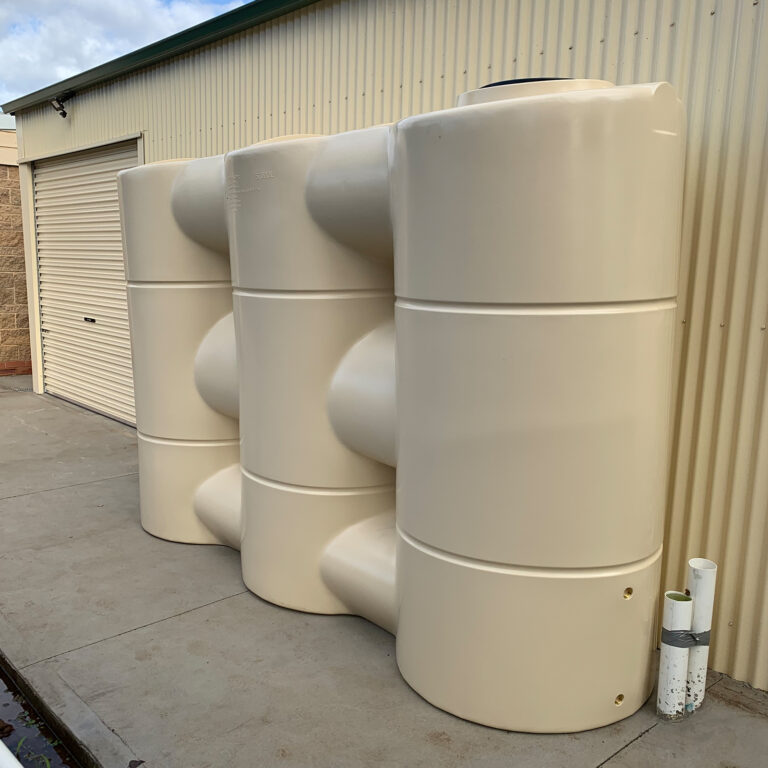Inexpensive Slimline Water Tanks: Optimize Your Rainwater Harvesting
Checking Out the Numerous Uses Rain Storage Tanks for Residential and Commercial Properties
As the international focus on lasting living methods proceeds to intensify, the application of rainwater storage tanks in both residential and industrial setups has arised as an important remedy. These tanks provide a storage tank for rainwater harvesting, presenting a myriad of prospective applications that expand much beyond simple storage space. From watering to commode flushing and landscaping, the convenience of rain containers is vast. Their integration into commercial residential properties opens up a realm of opportunities for eco aware businesses. The complex uses rain tanks offer an engaging instance for their fostering, not just as a sensible water-saving measure yet additionally as a testimony to liable source administration.
Advantages of Utilizing Rainwater Tanks
Utilizing rain storage tanks provides numerous benefits for both families and neighborhoods in terms of water conservation and sustainability. Among the vital advantages of using rain containers is the substantial decrease in dependence on keys water system - Slimline water tanks. By recording and keeping rainwater for later use, people and neighborhoods can decrease their demand for cured water, ultimately easing the problem on water treatment centers and lowering energy consumption linked with water transportation and treatment
In addition, rain harvesting via storage tanks offers a dependable different water source throughout times of water limitations or scarcities. This stored rain can be utilized for numerous non-potable purposes such as watering, purging toilets, and cleaning garments, decreasing the pressure on traditional water sources. In addition, using rainwater storage tanks can bring about cost savings for both families and communities by lowering water bills and decreasing the need for expensive framework developments to meet growing water demands.
Essentially, the application of rainwater tanks provides a lasting and eco pleasant approach to water administration, profiting both specific customers and the broader community in terms of water conservation, cost-efficiency, and durability.
Rain Storage Tank Use in Watering
Offered the advantages of rain containers in preserving water sources and reducing reliance on mains water system, a significant application lies in using kept rain for watering purposes - Slimline water tanks. Rain collecting systems can effectively accumulate and save rain, supplying a lasting water source for watering gardens, lawns, and farming areas. By making use of rain for irrigation, property proprietors can lower their dependancy on cured water resources, causing cost savings and ecological advantages

One of the key advantages of utilizing rainwater for irrigation is its pureness. Rainwater is normally soft and complimentary from the chemicals and additives often located in mains water, making it excellent for nourishing plants without the risk of dangerous effects. Furthermore, rain is at ambient temperature, which can profit plant development by avoiding temperature level shocks that can accompany cool mains water.
Rain Tanks for Commode Flushing

Implementing rain storage tanks for toilet flushing is a cost-efficient and ecologically friendly technique that can be easily incorporated into more information both residential and industrial buildings. The stored rain can be used to purge toilets by linking the tank to the existing pipes system. This simple yet reliable service can dramatically reduce water intake in a building, specifically in areas where water deficiency is an issue.

Incorporating Rain Containers in Landscape Design
These storage tanks can record and keep rain overflow from roofs, which can after that be used for sprinkling gardens, yards, and plants. By utilizing rain for irrigation functions, home proprietors can decrease their dependence on local water resources, leading to cost financial savings and conservation of priceless water resources.
Along with providing a lasting water resource for landscaping requirements, rainwater tanks can also help in handling stormwater overflow. By capturing rainwater that would otherwise flow right into tornado drains, these storage tanks can minimize erosion, decrease flooding threats, and prevent contamination of all-natural water bodies. Including rainwater tanks in landscaping can contribute to the total visual allure of the residential or commercial property, showcasing a commitment to environmental stewardship.
Commercial Applications of Rainwater Tanks
Using rain storage tanks in business setups supplies a lasting remedy for water management and conservation, benefiting businesses and the environment alike. Commercial applications of rainwater tanks are diverse and progressively prominent because of the expense savings and environmental advantages they provide. One key commercial usage is for watering objectives, where collected rain can be utilized to water landscaping, gardens, and agricultural areas bordering business residential or commercial properties. This can result in significant reductions in water bills and reliance on municipal water resources.
In addition, rain tanks can be incorporated into the fire suppression systems of industrial buildings. By having a committed water source for firefighting purposes, services can enhance their fire precaution and potentially minimize insurance costs. Additionally, rain collected in containers can be treated and made use of for non-potable purposes her comment is here within industrial residential or commercial properties, such as flushing commodes, cleaning, and cooling down systems. This not just saves fresh water resources yet also reduces operating costs for services. Overall, the consolidation of rain storage tanks in business settings provides a sensible and environmentally accountable approach to water administration.
Conclusion
From irrigation to toilet flushing and landscape design, the usage of rainwater tanks can help preserve water sources and minimize water bills. Overall, the versatility and sustainability of rain storage tanks make them an important investment for any kind of residential property owner looking to increase water performance.